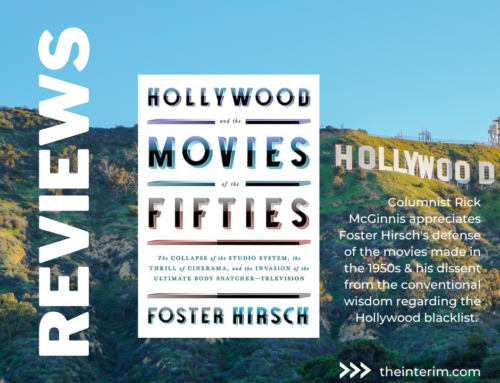The arrival of the first warm days brings with it the summer blockbuster, a seasonal indicator as venerable as crowded cottage weekends, sandy beach towels, the chemical cocktail of bug spray and sunscreen and the smell of gas generator exhaust and cotton candy at a fairground. The summer blockbuster has been declining with the general fortunes of Hollywood lately – this summer is predicted to be down by at least 10 per cent, thanks to early flops like King Arthur and Alien: Covenant – but it isn’t likely to go away any time soon, at least as long as the entertainment industry lives by the logic that anything that made money once will make it again.
The summer blockbuster was born on June 20, 1975. Previously, the big season for movies was winter, and the studios assumed that their audiences had better things to do when the sun was shining and days were longer and school was out. The turning point was the wide release of Jaws, Steven Spielberg’s film of Peter Benchley’s bestselling novel, a film whose setting and subject matter were aimed square at the heart of summer.
Jaws producer David Brown admitted that they’d delayed the release of the film “till people were in the water off the summer beach resorts.” Set in a New England seaside island town around the Fourth of July weekend, the film hit cultural and box office pay dirt, finding the spot where our ancient fear of nature’s lethality intersected with ‘70s unease and skepticism about the competence and intentions of the people we chose to lead us. Jaws-mania is one of my earliest memories of a pop culture phenomenon, inspiring neighbourhood kids to wonder if a shark attack could happen in Lake Ontario or, even more improbably, Wasaga Beach.
As much as I enjoy Jaws, and as many times as I’ve watched it, I usually lose interest or fall asleep sometime after the three men on the becalmed boat hunting the shark start comparing scars. This isn’t a knock at Steven Spielberg’s direction, or the performances of Roy Scheider, Richard Dreyfus and Robert Shaw, but a reflection of my opinion that Jaws isn’t really about a shark.
Much as Close Encounters and E.T. weren’t really about aliens, I believe that the first half of Spielberg’s film is far more interesting before the special effects really kick in and the spectacle overwhelms the setting and foreground he’s so carefully constructed. The resort town of Amity, Long Island and its new chief of police – a refugee from a violently decaying New York City beautifully played by Scheider – have a relationship that’s more tense and potentially catastrophic than any threat posed by a rogue shark.
We’re introduced to Scheider’s Chief Brody when he wakes up apparently hungover – a lot of drinking seems to happen to help folks get through life in Amity – and gets called out to discover the remains of a young woman who was attacked by a shark off the beach. He orders the island’s beaches closed, but gets overridden by Mayor Larry Vaughan, who corners Brody on a car ferry accompanied by the town coroner and newspaper publisher, a triumvirate of establishment interests who want the attack covered up to protect summer business.
When the body count inevitably rises and a boy is killed on a crowded beach a few feet from shore, Brody is the scapegoat. In one of the film’s most powerful scenes, the boy’s mother slaps him and accuses him of keeping the beaches open; it’s a moment more visceral than any shock cut or mechanical shark mauling to come. It takes another bloody shark attack and the realization that their summer is over before the town is finally galvanized into acting, and while Brody forces a trembling Mayor Vaughan to sign the authorization to hire Shaw’s Quint to hunt down the maneater, the mayor shakily admits that his own kids were out in the surf that day; he was, apparently, willing to sacrifice his own family to keep the town open for business.
The final great scene in Jaws happens on the boat, when Brody, Quint and Dreyfus’ marine biologist Hooper sit becalmed at night, and Quint reveals that he was on the USS Indianapolis, the ship that delivered the first atomic bomb to the island of Tinian, on its way to Hiroshima. The ship was torpedoed on its way home, Quint recalls, but being on a top-secret mission, went down without a distress call (not true, apparently, though the distress calls were ignored) and without being flagged as overdue for four days. The survivors floated in the Pacific the whole time, constant prey for sharks, and when they were finally rescued the ship’s captain was court-martialed and later committed suicide. This last detail isn’t in the film, but Benchley and the filmmakers would have known about it, and its echo in the scapegoating of Brody.
The bleak subtext of the film was emphasized even more in Benchley’s novel, where Mayor Vaughan and the town were implicated in shady mafia dealings and Brody’s wife, missing her exciting life in New York, has an affair with a Hooper who was more WASPy and dashing than the character played by Dreyfus. Life on shore was just as treacherous as any danger posed by the sea, and Benchley’s ending, with the shark simply expiring from its wounds before it can finish off the shipwrecked Brody, was so downbeat that Spielberg knew he had to come up with something more cathartic for the film.
As British journalist James Kidd described it in a 2014 article in The Independent: “This downbeat conclusion makes a more upscale argument than the film is capable of. Benchley’s shark is an amoral force of nature: not bad, just hungry. And what amoral nature has unleashed, so amoral nature reclaims in death. As Brody swims home, the inference lingers that Amity, not the ocean, is home to genuine evil: corruption, selfishness, infidelity, lies, fury and greed.”
Jaws made $123.1 million in its initial release, becoming the biggest grossing film up till that point, and summer would never be the same again, though none of the summer blockbusters that would end up breaking its record – Star Wars, Grease, Ghostbusters, Jurassic Park, Independence Day, and any number of Avengers, Indiana Jones and Batman films – would make us feel such dread under the summer sun, or encourage us to fear our elected officials and their drinking buddies more than any remorseless three-ton killing machine.





